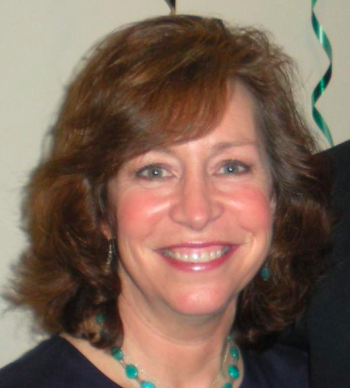Gov. Bill Walker has appointed Shirley Marquardt as the new executive director of the Alaska Marine Highway System.
She’ll head up a new position in the Department of Transportation that “will provide strategic direction to the system as a whole as well as oversight of operations, engineering, marketing and program development,” according to DOT Commissioner Mark Luiken.
In other words, it’s a deputy commissioner job with a different title, and it’s still a politically appointed job, which makes it highly unstable this election year.
Marquardt is the current director of Boards and Commissions for the governor, and was the mayor of Unalaska before that. If there’s someone who understands instability and politics, Marquardt is all that. Plus, she can bring in the Aleutian-to-Cordova vote come November.
“Shirley is an excellent choice for AMHS because she will help orient the ferry system to a stronger business model,” said Gov. Walker. “For the safety and prosperity of coastal Alaska and the businesses across Alaska who use the ferries, service should be reliable and predictable. ”
Marquardt will start in early June and be based at the AHMS headquarters in Ketchikan.
Changing the title for the person heading the ferries from “deputy commissioner” to “executive director” is a step in the process of making the ferries a separate public corporation.
And it comes after a year of no one at the helm of the ferry system. The most recent deputy commissioner in charge of the ferries was Mark Neussel, who left exactly a year ago. Neussl was a retired U.S. Coast Guard captain with 30 years of service; he was a technically savvy Department of Transportation deputy commissioner running the ferries for two years, and also ran the ferry system in 2011 and 2012.
The new corporation that is planned would still receive public funding but would be better for the public in ways not fully explained in this report, made to Southeast Conference last year.
MARQUARDT LEAVES BOARDS AND COMMISSIONS
For the most part, Marquardt’s position as the director of Boards and Commissions has been without controversy. She has overseen the appointments of hundreds of Alaskans to influential policy positions, and few have encountered resistance from the Alaska Legislature.
However, when the name of a Planned Parenthood activist was put forward to serve on a board overseeing the work of direct-entry midwives, the Walker Administration was deeply embarrassed by the choice, after it became public in MustReadAlaska.
And the appointments to the Board of Fisheries have been difficult as well. Walker’s appointment of Roland Maw became a stain on his administration; Maw is still in court fighting several felony charges that he defrauded the Permanent Fund Division by taking dividends when he wasn’t entitled to them.
Walker’s first Director of Boards and Commissions, Karen Gillis, also quit — quite publicly — after saying that Walker had jumped over her and appointed Roberta “Bobbi” Quintavell to a vacant seat on the Alaska Board of Fisheries, undermining Gillis’ credibility. The United Fishermen of Alaska objected to Quintavell’s appointment because of her ties to the Kenai River Sportfishing Association. That group, KRSA, had deep-sixed Walker’s prior choice for the seat, Robert Ruffner.
Again this year, a controversy arose when the governor decided to appoint Duncan Fields of Kodiak to a seat on the board that is normally reserved for a Matanuska-Susitna area person representing sports fishermen. Another kerfuffle ensued and 16 groups signed a letter opposing the appointment. Fields is a commercial fisherman and his appointment would have tilted the board power to the commercial side.
The governor has not yet announced who will take Marquardt’s place running Boards and Commissions.
